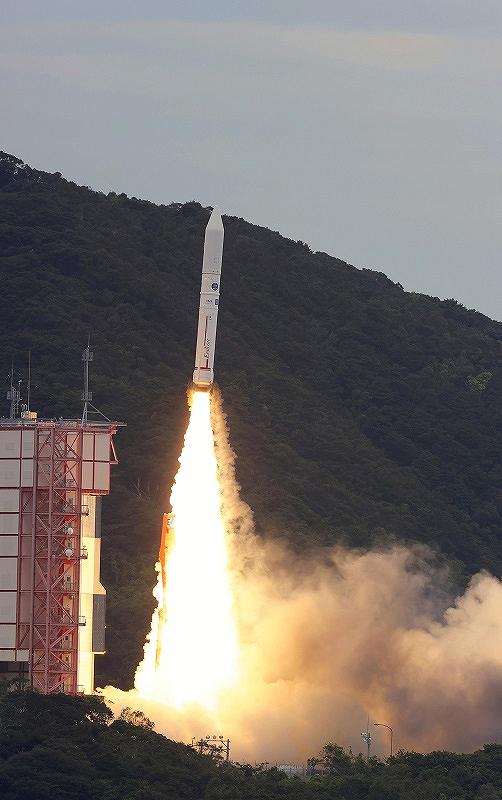Epsilon-6 launch fails as JAXA sends self-destruct signal

The Epsilon-6 rocket is launched from Uchinoura Space Center in Kagoshima Prefecture at 9:50 a.m. Wednesday.
18:15 JST, October 12, 2022
The Japan Aerospace Exploration Agency said it transmitted a self-destruct signal to the Epsilon-6 solid-fuel rocket soon after it was launched on Wednesday morning from Uchinoura Space Center in Kagoshima Prefecture.
JAXA sent the signal 6½ minutes after the rocket was launched at 9:50 a.m. The rocket appears to have fallen into the sea to the east of the Philippines.
This was the first time that the launch of an Epsilon, introduced in 2013, had failed. The Epsilon is Japan’s mainstay rocket along with the H2A. JAXA last had a launch failure with a mainstay rocket in November 2003 with the H2A-6.
The Epsilon-6 was confirmed to have an abnormal attitude when the second stage of the rocket had used up its fuel and was about to separate from the third stage. A possible malfunction to the attitude control system was cited.
The Ministry of Education, Culture, Sports, Science and Technology, which oversees JAXA, set up a task force to investigate the detailed cause.
JAXA and IHI Aerospace Co. jointly developed the Epsilon. The rocket system has three stages and is 26 meters long, weighing 96 tons.
The Epsilon-6 was carrying eight satellites, including a small radar satellite from the Fukuoka-based space startup iQPS Inc. It was the first time for an Epsilon rocket to carry a commercial satellite, according to the science ministry.
“We are very sorry we could not live up to the expectations of the Japanese people,” JAXA President Hiroshi Yamakawa said at a press conference. “We will do our utmost to find out the cause and take preventive measures, which is most important for JAXA to regain public trust in rockets.”




